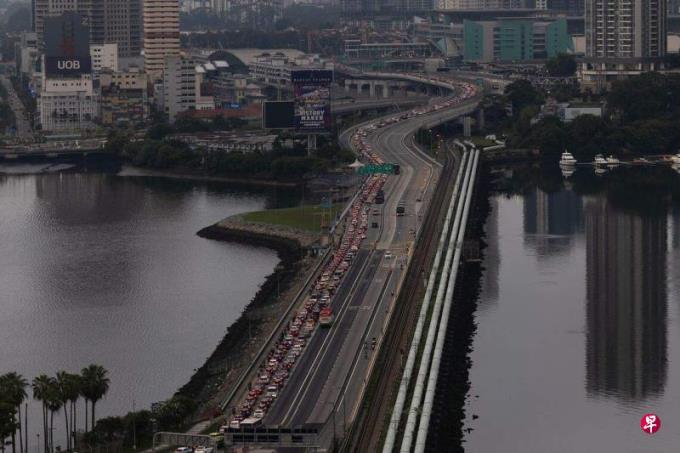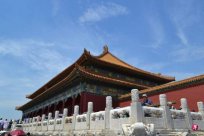
To set up an agreement for free flow of personnel, there must be a strong mutual trust foundation between the contracting parties. They are convinced that the other party has the ability to cooperate with the criminals and must share information.One aspect must be planned.
The Singapore Immigration and level (ICA) predict that by 2050, the number of customs clearances of Woodlands will reach 400,000.The official has made a long -term plan to build a new level facility in the center of the old Woodlands town, and prepares to welcome the increasingly large cross -border customs clearance army.
The Xindou level has always been the most busy land level in the world.According to the 2023 statistics released by ICA, last year's public holidays and school holidays, the average daily customs clearance of the two land levels reached 440,000.For calculations, Woodlands and Dasi have to deal with 220,000 passengers a day, with an average level of about 9,200 people per hour.
ICA's plan to expand the Woodlands customs tank shows that officially foresee the next 25 years, and the number of customs clearance will be doubled.This is equivalent to one more Woodlands level to meet the customs clearance needs.The second channel on the other side will probably need to be expanded for some time in the future.
Sooner or later, Malaysia also needs to expand the Johor Bahru customs level to meet the needs of customs clearance.Like Woodlands, Johor Bahru faces limited land challenges.
This can't help but remind people, is it likely to establish a Schengen agreement like the European Union?
TheSchengen Agreement allows people, goods, services, and capital freedom to flow, and personnel enter and exit between the contracting parties without showing a passport for a customs inspection.
When the European Union signed the Roman treaty to establish a European economic community as early as 1950, there was the idea of free flow of personnel and goods, but it was not easy to demolish the barriers between the country and the country.Europeans spent more than 30 years, only signed a Schengen agreement in 1985, and fully implemented the Schengen Zone in 1995.At first, only five countries signed and implemented, and other countries saw the benefits brought by the free flow of personnel, and then gradually joined.
This is a very convenient arrangement for the nationals and tourists of the Schengen area.It directly drives the growth of the tourism industry, promotes the employment and talent flow of countries in the Schengen zone, and also drives enterprise investment and trade activities.Switzerland, Iceland, Norway, and Liechtenstein, four non -EU countries, saw the long -term benefits brought by the agreement, so they also joined the Schengen District.
From a certain perspective, the Schengen agreement has strengthened security cooperation among EU countries, because after eliminating the border check, security threats can also be freely flowing.Criminal and eliminated threats.
In fact, the free flow of crimes and criminals is the biggest weakness of the Schengen area.Because there are no border check -in, drug smuggling, population sales, illegal immigrants, terrorists, epidemic diseases, etc. are easier than before.France's many terrorist attacks and European refugee crisis are the most obvious examples.The crown disease in 2020 made the Schengen country have to set up a barrier to prevent the virus.
Take Switzerland as an example.Switzerland voted to join the Schengen area in 2008, and then Switzerland's law and order had deteriorated.After 10 years of multinational security cooperation, Switzerland's public security has improved.According to Swissinfo, Switzerland's overall crime rate in 2018 decreased by 20%from the Schengen Zone in 2008, and the number of stealing cases decreased by 37%.Personnel can flow freely and also promote the exchange and business activities of the Swiss and other Europeans at all levels.In fact, as an inland country, joining the Schengen Zone and European single market will only benefit more than disadvantages.
Therefore, although joining the Schengen area will bring many challenges, none of the Schengen countries regret and ask for exit.
To establish a free flow of personnel, there must be a strong mutual trust foundation between the contracting parties. They are convinced that the other party has the ability to cooperate with the criminals and must share information.EssenceThe state must be prepared to transfer some border control sovereignty, and the public must also be ready to welcome the early pain.Such mutual trust is not easy to achieve.
National borders are the products of modern nation -states.After the First World War, the practice of the movement of the flow of people such as passports and visas to control the flow of people in order to settle the movement gradually formed.The establishment of the Schengen zone has nothing more than to break the practice of this only for decades, and restores the freedom of transnational visits in European history.
Some people may say that Europeans have the same text and have a stronger willingness to integrate after World War II.In fact, why is it the same in the same article?We also have a long -term common history. It belongs to two countries that only started 60 years ago.Before that, the people at both ends of the new bikes could travel freely without a passport.
Recently, the Thai government proposed that it is necessary to unite Vietnam, Cambodia and Laos to try to build a free -flowing area similar to those similar to the Schengen area to promote the development of tourism with a whole.The Schengen area of Pan -Asia may be unrealistic at this stage, but if you want to move in this direction, the New Malaysian Club is the beginning of the best discussion in cooperation.




